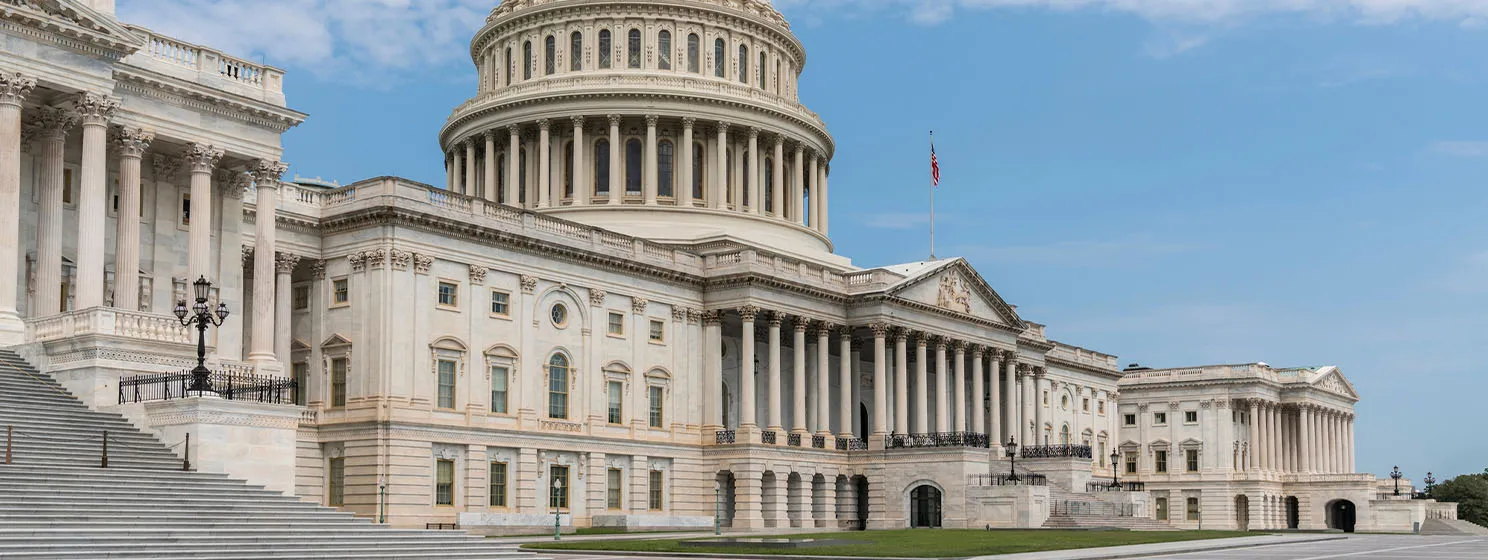|
Getting your Trinity Audio player ready...
|
An enforcement action by the Commodity Future Trading Commission (CFTC) against a decentralized autonomous organization, or DAO, is causing alarm over the potential legal liability of DAO members and the United States’ competitiveness as an innovation destination.
Venture capital firm Andreessen Horowitz is the latest to file their two cents with the court hearing the CFTC’s case against Ooki DAO, arguing that if regulators can take action against DAOs at all, it can only be done against specific individuals rather than the organization as a whole. Their voice joins a chorus of debate over how the law should hold DAOs accountable for their activities.
CFTC allowed to serve DAO via its online forum
The saga began when the CFTC took action against blockchain company bZeroX LLC (bZx) and two of its co-founders, which were accused of offering illegal digital asset trading and lending services in breach of the Commodity Exchange Act. The bZx LLC entity would go on to settle for $250,000. However, in August 2021, control of the bZx protocol was purportedly handed over to a DAO that would eventually be named the Ooki DAO. As the Ooki DAO was the effective successor to the original bZx entity, the CFTC also filed suit against that entity.
Taking action against Ooki DAO raises an interesting legal question in itself. The DAO isn’t an incorporated entity, and is, in theory, directed only by a decentralized mass of users. There is some challenge, then, in deciding how to go about holding the DAO legally accountable. Indeed, this uncertainty seems to have been the precise motivation when bZx handed its protocol over to the community at large in establishing the DAO. According to the CFTC’s complaint, one of bZx’s founders stated on a call prior to the change:
“So many people across the industry right now are getting legal notices, and lawmakers are trying to decide whether they want DeFi companies to register as virtual asset service providers or not – and really what we’re going to do is take all the steps possible to make sure that when regulators ask us to comply, that we have nothing we can really do because we’ve given it all to the community.”
This attitude is common among tech bros who view the law as an obstacle to be overcome or evaded, but it’s one that is being proven as increasingly naïve—as the CFTC’s case against the Ooki DAO has shown.
“The bZx Founders were wrong, however. DAOs are not immune from enforcement and may not violate the law with impunity,” read the CFTC’s filing.
As for who enforcement action should be directed against, the CFTC’s suit is brought against the DAO directly and defines it as being comprised of those individuals holding the OokiDAO Tokens who use these tokens to cast votes over how the bZx protocol should be governed. As for who the suit should be served against, the CFTC successfully asked the court for permission to serve the lawsuit via the chatbox on the Ooki DAO website and a post on its online forum. This, the CFTC argued, and the court agreed, was necessary because, by nature, the DAO has no headquarters or physical office and has not registered as any kind of entity anywhere in the world.
Therefore, under the CFTC conception of a DAO, any member who has used their tokens to vote on its activities will be personally liable for them. And having chosen to organize as a DAO as opposed to, for example, a limited liability company, that liability is unlimited.
‘Crypto’ interest groups argue CFTC is on unstable legal ground
However, the CFTC’s brash pursuit of the Ooki DAO – and the legal conceptualization they’ve used to do it—has drawn concern from certain corners of the digital asset industry. The court’s decision to allow service attracted urgent comment from ‘crypto’ interest groups, including filing multiple amicus curiae briefs (court filings made by non-parties who nonetheless have an interest in the proceedings) in the Ooki DAO action.
“The commission has not adequately pled that its proposed method of service on Ooki DAO is likely to notify the parties potentially liable for the claims of this lawsuit,” argued DeFi Education Fund. “The issues that the commission’s actions raise are significant, and allowing the commission to proceed in the manner it has proposed could chill novel and innovative forms of software development in the United States.”
LeXpunK, a DeFi interest group comprised of lawyers and developers, gave a similar opinion:
“The CFTC’s arguments in favor of alternative service in its motion obscure the fact that the CFTC seeks judgments against unknown individual token holders, as voting members of Ooki, and that it has failed to take adequate steps to provide them constitutionally required notice.”
The court was still being assailed by opposing opinions as recently as Monday, when venture capital firm Andreessen Horowitz filed their own amicus curiae brief urging the court to reconsider its decision to allow service on an unincorporated association such as the DAO.
“[The CFTC] seeks to do what California law does not allow – serve a diffuse and unidentified group of individuals alleged to be engaged in unlawful conduct,” the venture capital company said.
“Allowing the CFTC to serve process on and proceed against defendant Ooki DAO under this theory could imperil an entire industry by chilling participation in decentralized governance or community activity,” it added.
But in an illustration of how novel such legal issues are, there was no universal agreement even within the CFTC in deciding to pursue Ooki DAO. CFTC Commissioner Summer Mersinger issued a dissenting statement alongside the initial announcement, drawing attention to the act that DAOs and the blockchain technology underpinning them did not exist when the Commodity Exchange Act came into force in 1974.
“While I do not condone individuals or entities blatantly violating the CEA or our rules, we cannot arbitrarily decide who is accountable for those violations based on an unsupported legal theory amounting to regulation by enforcement while federal and state policy is developing,” she wrote.
It’s either legislation or regulation – but not nothing
Such disagreements are inevitable as lawmakers and regulators continue to catch up to digital asset technology. As new ways of doing business become popular, such as organizing activities under a DAO, novel legal questions demand answers.
Some legislatures have already done this. The state of Wyoming enacted legislation in 2022, which creates a path for DAOs to obtain legal status as a limited liability company, effectively protecting its membership from unlimited personal liability.
But in the absence of comprehensive and dedicated laws and regulations, law enforcement and regulatory authorities must continue to carry out their statutory mandates. The CFTC is concerned with fostering and stewarding the integrity of the U.S. derivatives markets and ensuring market participants are adequately protected. When a firm like bZx makes a business out of highly regulated activities such as leveraged digital asset trading, the CFTC will not derelict its duty purely because that business has obfuscated its ownership behind a novel legal arrangement, as the likes of Andreessen Horowitz would argue.
Service of a legal action upon a DAO might be practically and conceptually difficult. The CFTC’s answer seems the most sensible in the absence of a specific legislative one. But one thing is certain above all: the idea that such difficulty should mean that the law simply doesn’t apply to DAOs and the activities they carry out—as bZx and the amicus curiaes would support—is a non-starter.
Watch: Richard Baker on engineering a smarter financial world with blockchain

 07-08-2025
07-08-2025 





